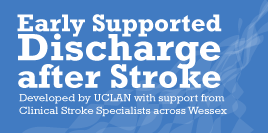 |
Memory |
Recommendations 6.40.1
A. Patients who complain of memory problems and those clinically considered to have difficulty in learning and remembering should have their memory assessed using a standardised measure such as the Rivermead Behavioural Memory Test (RBMT).
B. Any patient found to have memory impairment causing difficulties in rehabilitation or undertaking activities should:
- Be assessed medically to check that there is not another treatable cause or contributing factor (eg delirium, hypothyroidism)
- Have their profile of impaired and preserved memory abilities determined (as well
as the impact of any other cognitive deficits on memory performance, for example
attentional impairment) - Have nursing and therapy sessions altered to capitalise on preserved abilities
- Be taught approaches that help them to encode, store and retrieve new information, for example, spaced retrieval (increasing time intervals between review of information) or deep encoding of material (emphasising semantic features)
- Be taught compensatory techniques to reduce their prospective memory problems, such as using notebooks, diaries, electronic organisers, pager systems and audio alarms
- Have therapy delivered in an environment that is as similar to the usual
environment for that patient as possible.
Sources 6.40.2
A. Consensus
B. Hildebrandt et al 2006; Hildebrandt et al 2011; das Nair and Lincoln 2007; Fish et al 2008; consensus
 |